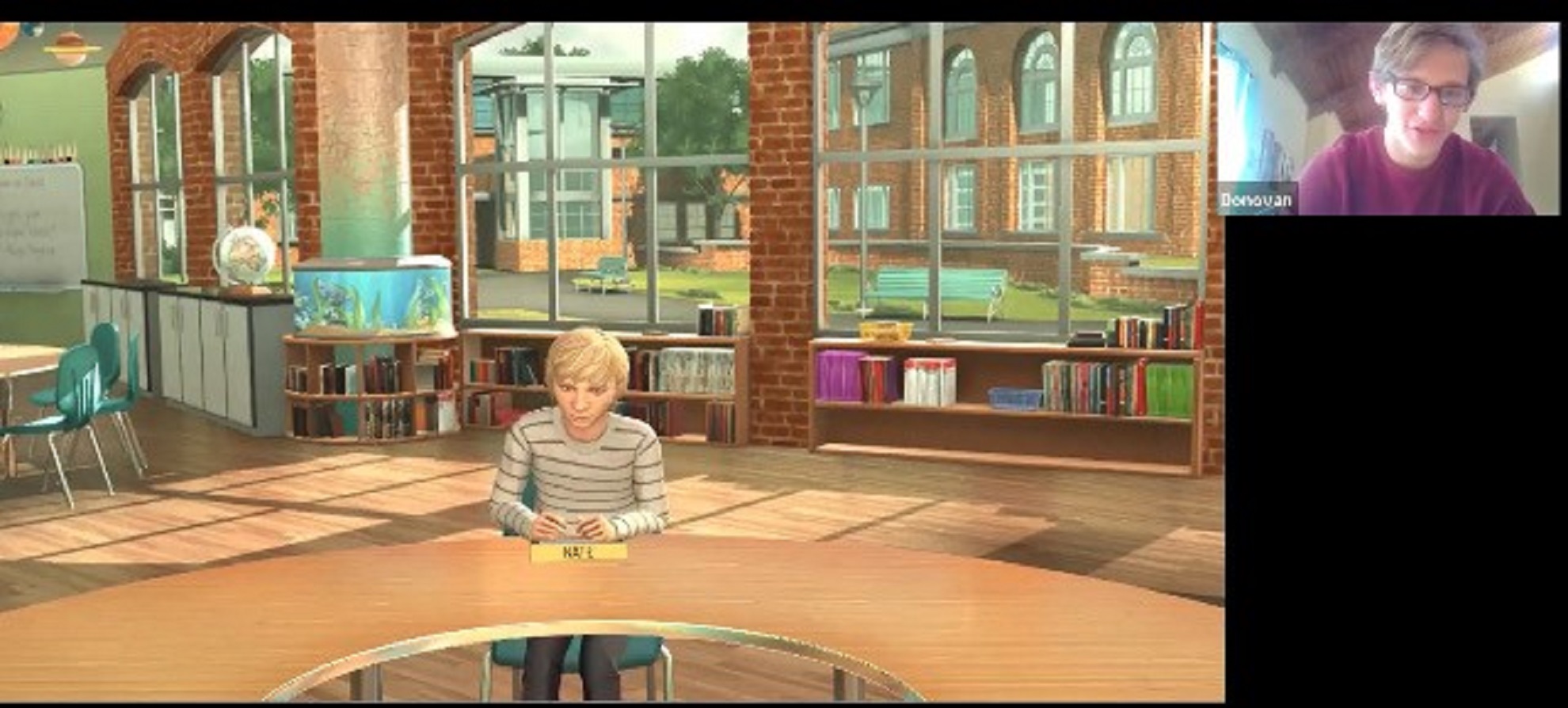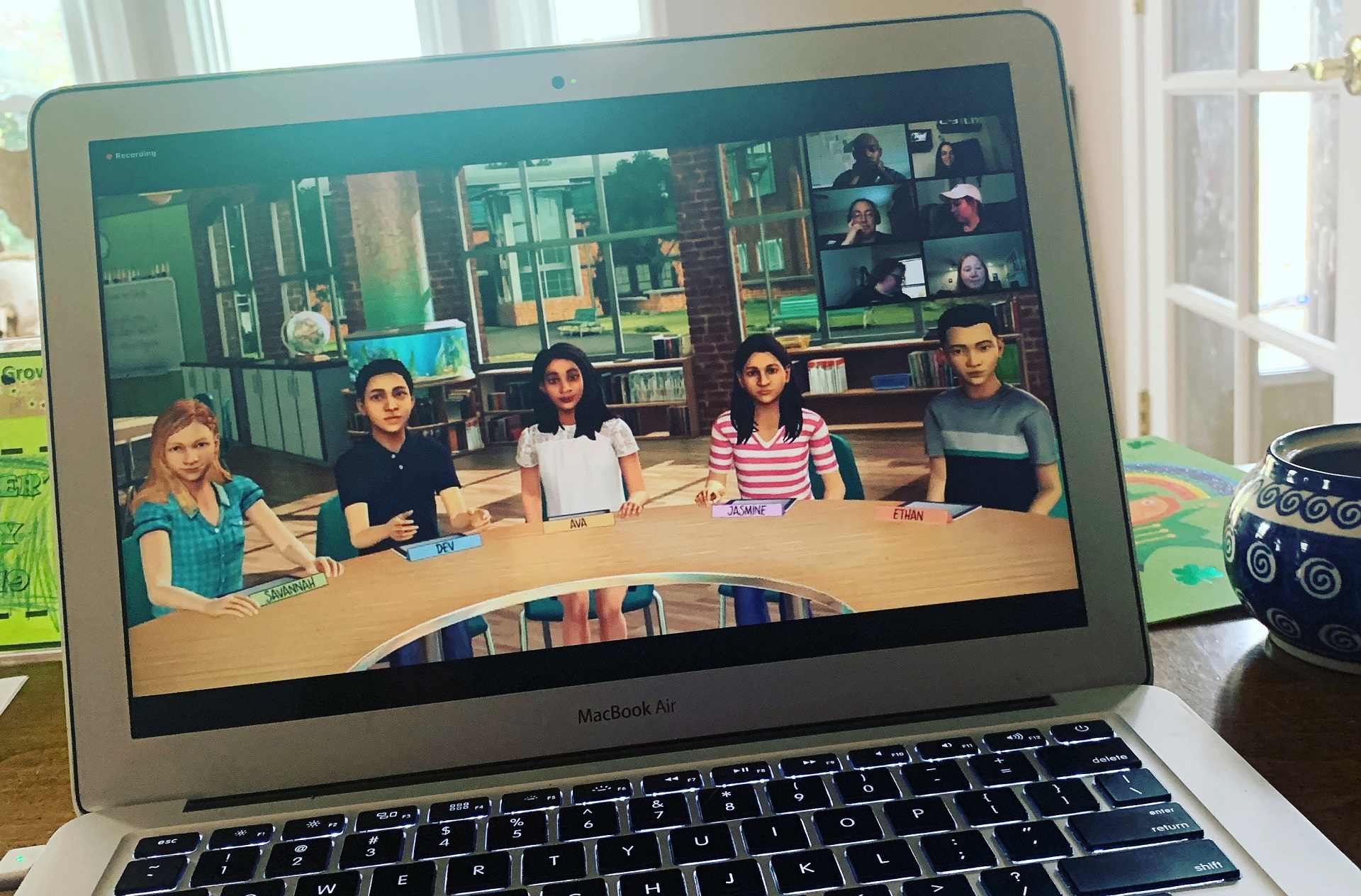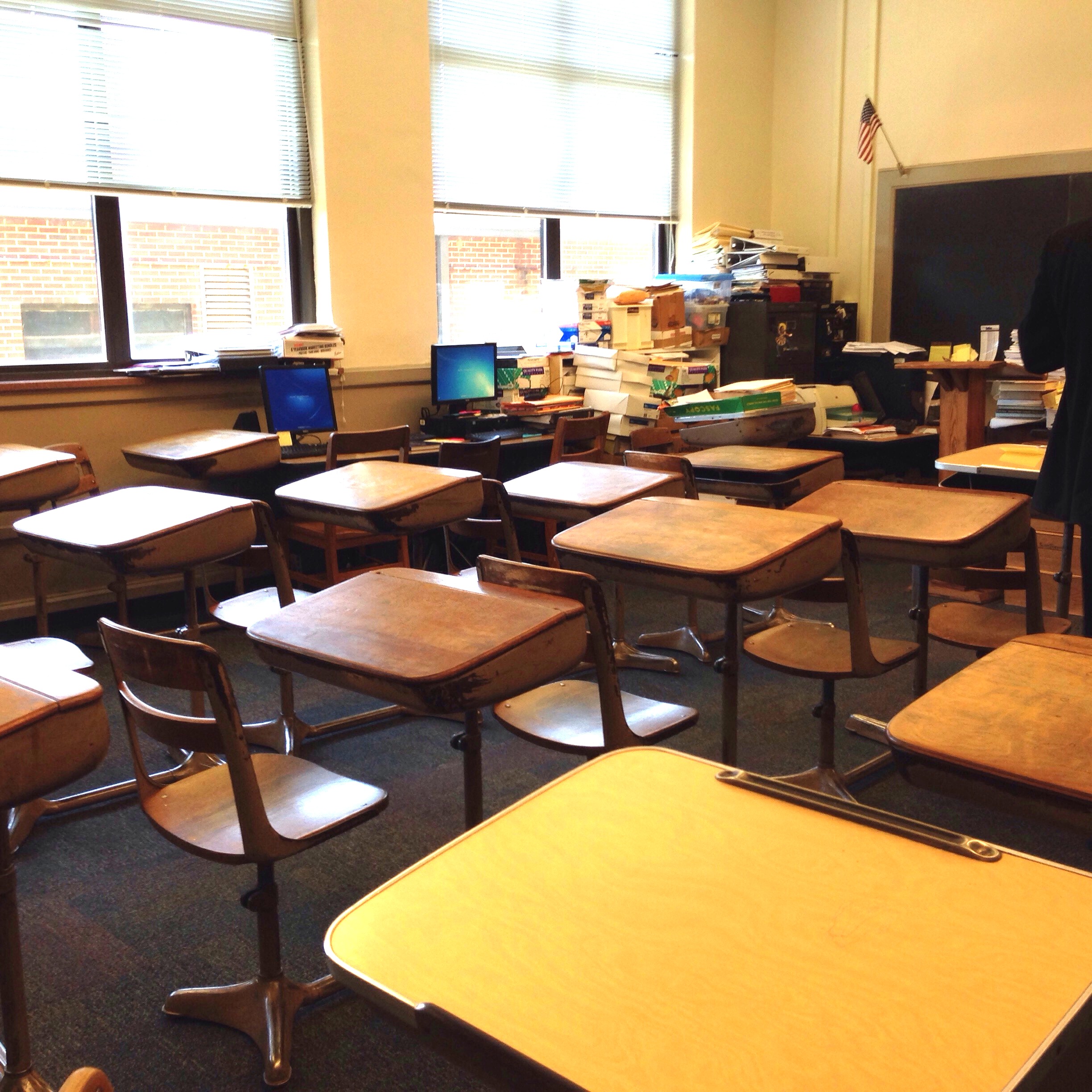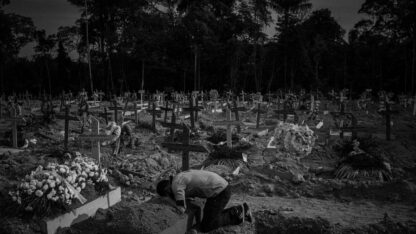Despite Coronavirus, Soon-To-Be Teachers Finish Training — Using Videos, Case Studies, Avatars

Kennesaw State University’s avatar lab has a “meet the students” feature that lets teachers interact with student avatars individually.
Courtesy of Kennesaw State University
Many college seniors who are in teacher-training programs finish their student teaching or internship in the spring.
This year is different.
Most Georgia K-12 public school classrooms shifted to online learning in March, due to the coronavirus. So, college education programs have had to come up with alternatives so teaching candidates can finish their training.
Virtual Reality
Soon-to-be teachers at Kennesaw State University use an avatar lab to train.
Teaching candidates interact with a screen of student avatars who all have different personalities and academic needs.
“It’s a mixed-reality platform,” says Kate Zimmer, an associate professor of special education at KSU and director of the avatar lab. “It allows us to sort of manipulate environments to mock the real world. We embed it throughout our program so our teacher candidates are better prepared.”

Professors can program the avatars’ behaviors, for example, to see how the future teachers will handle them.
“You can gauge the student’s behavior to a low, medium or high,” Zimmer says. “So if you just want a teacher candidate to practice a specific skill or content, you might start them off at a lower level. Once the students are familiar with the environment, we typically recommend a medium behavior, a level two, because that’s more what teachers are going to interact with in the real classroom.”
Emily Draper is a KSU graduate student. She teaches students with special needs in the Gwinnett County Public Schools.
“I’ve interacted with [the lab] four times,” Draper says. “The first time is just to get to know the students because each student has a personality and a background that follows them through any interaction you have with them. So, if one student has a dog named Chewy, that child is going to have that same dog throughout. So we are presented with the opportunity to use that information to make the lessons more engaging for the student.”
Draper says the program gives teachers a chance to practice their lessons and classroom management in a controlled setting. Their supervisors can pause the simulation and give them feedback. Draper says working in the lab lets her fine-tune lessons before she teaches them.
“Nothing can replace time with your students in an actual classroom,” Draper says. “But being able to control the setting with the lab is one of the most beneficial things that I noticed from it.”
These candidates have the experience of trying to think through what to do with virtual learning and get feedback on that and in ways that regularly we would not have prepared [them] to do that.
Joyce Many, dean of undergraduate studies and educator preparation at Georgia State University
KSU is one of 20 institutions with licenses for the avatar lab. The college of education had been using the lab to train teachers before COVID-19. Zimmer says since the pandemic hit, lab usage has tripled.
“We usually have about 50 students or so come into the lab,” she says. “In March and April, we had 278 students.”
Zimmer says the lab will help some KSU seniors finish their training this semester and start applying for jobs. To help in that effort, the Georgia Professional Standards Commission, which certifies teachers, has relaxed some regulations this year.
For example, new teachers who haven’t completed their training due to COVID-19 will have another year to finish.
Training With A Twist
Some of the state’s biggest colleges of education say their candidates won’t need the extra time to finish field experience. Some candidates will wrap up their training by teaching students online since most schools have switched to distance learning.
Joyce Many is the senior associate dean of undergraduate studies and educator preparation at Georgia State University. She says GSU would like its teaching candidates to finish their training by teaching students online, since that’s what many of their supervising teachers are doing during the pandemic.
“These candidates have the experience of trying to think through what to do with virtual learning and get feedback on that and in ways that regularly we would not have prepared teachers to do that,” Many says.
But, she says, in cases where that’s not feasible, GSU has come up with alternative options.
“We had lists of different types of videos that they could go and observe and analyze, and it could be across their grade level or their content areas so that they could see what strong teaching is,” Many says. “Then we gave them opportunities to continue to think, ‘How would you teach your curriculum?’”
The University of Georgia’s college of education has taken a similar approach.

“The vast majority of our candidates … are supporting public school teachers, counselors and leaders in their work in those online environments,” says Stacey Neuharth-Pritchett, UGA’s associate dean for academic programs in the college of education. “In some other cases, schools have modified their instruction significantly, so our students can no longer participate in some of those online spaces. In those particular cases, we’re using things like case studies and simulations and videotapes and other types of discussion boards to approximate the student-teaching experience and other clinical internship experience.”
Neuharth-Pritchett says UGA’s candidates get a lot of experience in the field. Some programs, she says, place students in classrooms for four semesters. Still, there’s a chance some candidates could run into challenges due to the pandemic, depending on the school district or school where they’ve been placed.
“Based on the guidance we receive from [the Professional Standards Commission], if our candidates completed more than half of their student-teaching experience, they would qualify for a credential for the next year, and then again we’re rounding out that experience with some of these virtual opportunities,” Neuharth-Pritchett says.
All three universities — GSU, KSU and UGA — emphasize the importance of field experience throughout their teacher-training programs.
As such, all three schools say their candidates are on track to graduate this semester and start teaching in the fall.








